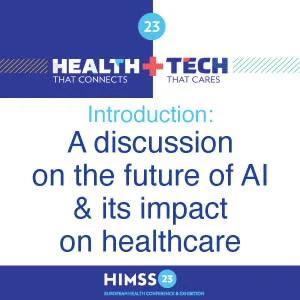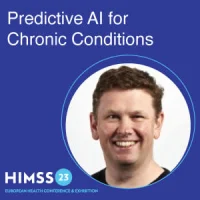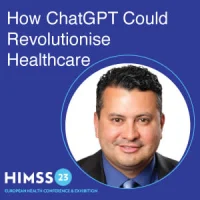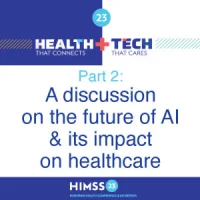Lee Kim (Senior Principal Cybersecurity & Privacy, HIMSS)
OpenAI was launched back in 2015 and since then we knew ChatGPT was built on open air, which is a foundational knowledge language model. Imagine that in this point in time we have AI that can understand context, nuance and even potentially emotion of some kind.
A demo of ChatGPT launched not only that long ago in November 2022 and it just took off. Most people had never tried it or used it. Now it is used for writing stories, and helping people travel. Could it be used in healthcare? We'll find that out in a moment.
GPT-4 is out at the moment, and it even allows real time searching of the Internet. Returning back to GPT-3, the number of parameters was boosted to 175 billion, which is much larger and advanced in comparison to GPT-2 and GPT-1. GPT models have shown promise in various applications, including everything from customer services, education and potentially healthcare. The use of AI in healthcare, including chatbots or virtual assistants, may help us solve workforce issues, as well as provide services such as everything from mental health through to discussion between therapist and patient.
Video played on screen by Google:
We believe large language models have the potential to revolutionise health care and benefit society.
It is interesting to hear about the recent advancements in language models like PaLM 1 and PaLM 2 in the field of healthcare. Language models have the potential to contribute significantly to medical research, diagnosis, and treatment by processing and analysing large volumes of medical data. We have broken through a new barrier and reached a significant milestone as these versions have scored 85% on the U.S. Family Medical licensing exam.
This is immensely exciting as it indicates the potential of these models to assist healthcare providers in their jobs.
Finally, we are at a stage where you can see the confidence of AI systems in being able to answer your questions. The way we started with Met-PalM2 was really to take PaLM 2, which is Google's most advanced language model, and then adapt it to the medical domain.
The interpretation of medical information and making clinical decisions requires working with a panel of experts and clinicians across the U.S. and the UK.
In India, we took a representative set of answers from a panel of clinicians and then two of the models produced answers that reflected those answers. From there, clinicians provided their judgments and evaluated whether these models are performing better across a set of human values, including things like low likelihood of medical harm, alignment of scientific consensus, precision, and the lack of bias.
One limitation of the existing work was that there was no standard way to evaluate language models in the medical domain. So, we introduced multi Met key rate and conducted adversarial testing, which are important steps to evaluate and improve language models. These efforts help ensure that the models align with our values and can handle a wide range of scenarios.
We are opening access to these models through platforms like Google Cloud, and we hope to gather feedback from our partners in order to further improve and design them onwards.
One aspect that we are very excited about is the inclusion of multimodal capabilities, where a model is not only able to understand text but can also interpret medical records, medical images, CT scans, and maybe even genomics data or forensic information.
I think the potential is immense. If we do this safely, responsibly and boldly, it is going to have a large impact in the world. Although there is still a lot of research to be done, I am very optimistic that we can get there.
Speakers:
Lee Kim (Senior Principal Cybersecurity & Privacy, HIMSS)
Philippe Gerwill (member of advisory boards for various startups and other tech companies)
Luís João (Head of Public Sector at Google Cloud, Portugal)
Source: HIMSS23










